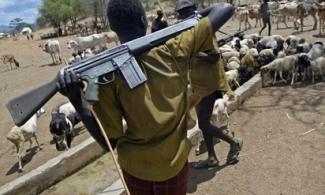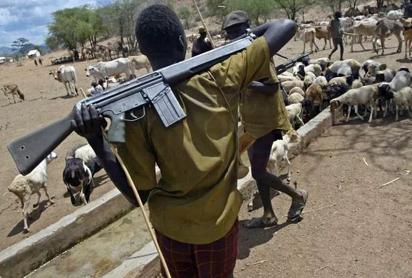
A nongovernmental organization, the Coalition on Conflict Resolution and Human Rights in Nigeria said over 2000 lives have been lost to violent activities and clashes between herdsmen and farmers in the country.
The group also said thousands of Nigerians have been displaced by the conflict in a report read by Barrister Maxwell Gowon, the leader of the coalition during a media conference in Abuja on Monday.
The coalition said the figure was derived from its tracking of loss of lives, properties and other consequences of the clashes between the herdsmen and farmers Benue, Taraba, Plateau, Adamawa, Kogi and Nasarawa states and careful analysis of the situation using surveys, questionnaires and interviews with critical stakeholders as well as victims.

He said, “The Coalition, therefore, embarked on a review of the clashes with a view to making interventions that will spur rapid resolution of the crisis so that life can again return to normal for the millions of people that have been negatively affected. In the course of this review, the Coalition’s researchers visited some selected affected communities in Benue, Taraba, Plateau, Adamawa, Kogi and Nasarawa states.
“These states were selected using heat maps developed from interactively plotting reported incidents against locations on the map. The selected states, with the exception of Nasarawa, were chosen because they recorded the highest number and most intense level of violence in the 18 months that were assessed.
“Researchers also polled officers of the military and security agencies that have been deployed in the crisis areas. Questionnaires were distributed; interviews were conducted, as well as surveys.”
The group also said its findings revealed that some governors had turn the situation into a cash cow to further exploit their people for political and financial benefits rather than taking rigorous steps to fight the calamities.
It added that it also observed that the changing aspects of these crises were poorly understood by a wider spectrum of stakeholders, which has impacted support for initiatives aimed at solving the problem.
Contrary to popular opinion, the group claims the outcome of the review has revealed that the military has been effective in returning peace and order to the affected areas through the arrests it has made.
The report says, “This is being carried out without any sentiment by the Nigerian military and in a few instances the government forces were not spared by criminal elements. For example, the Chief of Army Staff, Lt Gen. Tukur Buratai at an address on the deployment of troops to crisis areas said: “We have deployed officers across Benue, Taraba and Nasarawa states where to ensure peace and stability for the development and betterment of our country.”
The report continues, “The crisis between herdsmen and Farmers in some instances is instigated by persons without stakes on either side of the divide between herders and farmers. Unrelated hostilities between warring communities are also passed off as attacks by armed herdsmen. There was an instance in Benue State at Omusu where a clear case of conflict between Omusus and Okana communities in Okpokwu Local Government Area was reported as “armed herdsmen attack” even when it has nothing to do with an existing conflict between Omusu community and herdsmen.”
The group also called for the extension of the Exercise Ayem Akpatuma in Taraba state to more states affected by the herdsmen clashes with the farmers.